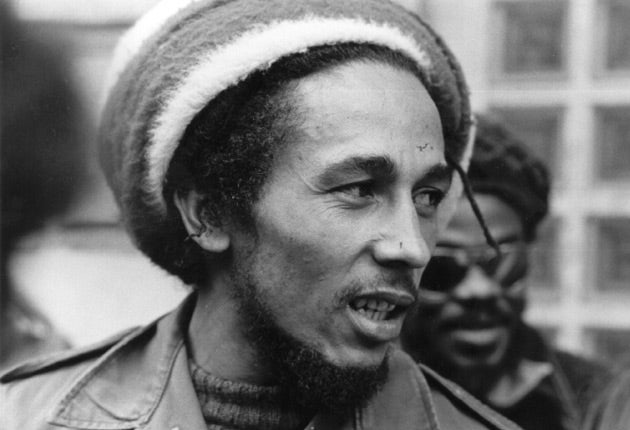Bob Marley 'blacked up' to blend in

Bob Marley preached inner peace and serenity to the masses, but was so racked by angst over his race that he used shoe polish to blacken his hair, according to a new book.
Such insecurities, during Marley's teenage years in Kingston, Jamaica, contrast strongly with the reggae superstar's image around the world.
He advocated spirituality and spread messages of peace in hits like One Love and No Woman No Cry.
During the early 1960s, Marley was torn between the influence of local Rastafarians and his own heritage. The son of a white father and black mother, he was essentially forced to choose between the two.
Marley's widow, Rita, is quoted in the book – entitled I&I: The Natural Mystics: Marley, Tosh and Wailer – as saying that her husband was so racially sensitised and aware of bullying for having a fairer complexion that he asked her to "rub shoe polish in his hair to make it more black; make it more African".
The author, Colin Grant, has interviewed members of Marley's inner circle for the book, released in January. These include Marley's late mother Cedella Booker and Chris Blackwell, founder of Island Records.
Grant explained: "When Marley moved to Trench Town in Kingston aged 13 he was thought of as a white man and would have got a lot of grief for that.
"His father was a so-called white man, who moved in white circles, and it was unusual... to marry a black lady. But he did. It's interesting that Marley went on to do that as well. He married a very black lady, Rita, and that was a time when people married up and out of colour. He did exactly the opposite."
While living in Trench Town, Marley met Bunny Wailer and Peter Tosh, three of the instrumental figures who went on to form the Wailers in 1963.
By 1966 they were its only members. Their first major studio album, Catch a Fire, was released in 1973, and contains most of the group's best known hits, including Get Up, Stand Up. Grant argues that Wailer and Tosh were as instrumental in popularising reggae as Marley, though it was he who has gone down in history as its figurehead.
Marley once reflected: "My father was a white and my mother was black. Them call me half-caste or whatever. Me don't dip on nobody's side. Me don't dip on the black man's side nor the white man's side. Me dip on God's side, the one who create me and cause me to come from black and white."
Marley was born in 1945 in the village of Nine Mile, before moving to Kingston. His father, Norval Sinclair Marley, was a white Jamaican of English descent. Norval married Booker when she was 18, but died in 1955 when the artist-to-be was suffering widespread racial prejudice because of his skin colour.
While Grant says this part of Marley's life is well known in Jamaica, the full detail of what befell the young singer has remained unexplored until now. Marley died in 1981.
Join our commenting forum
Join thought-provoking conversations, follow other Independent readers and see their replies
Comments